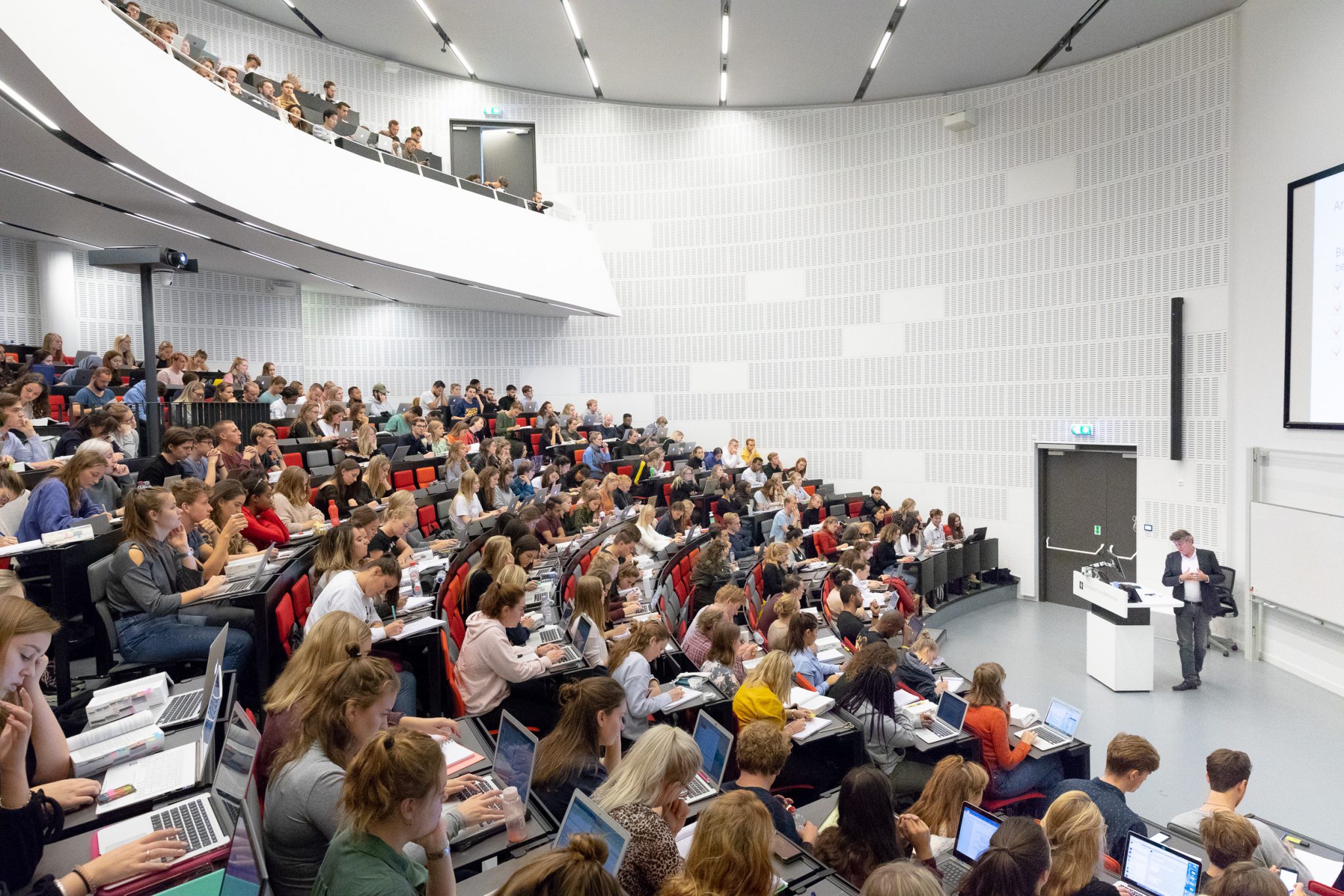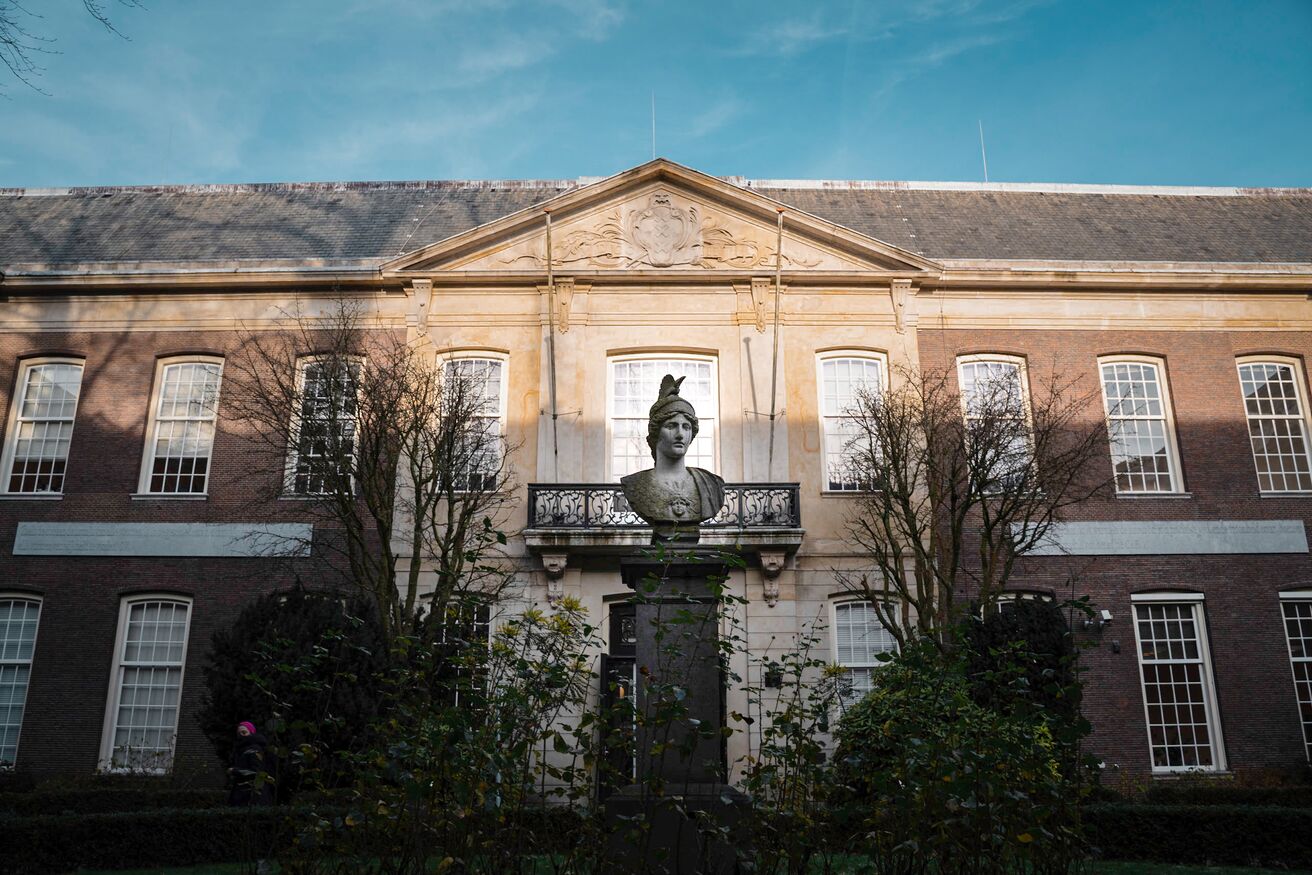
Educational Leadership
Please note: this programme is conducted in Dutch.
The Leergang Onderwijskundig Leiderschap (LOL) contributes to a network of influential, inspired and connecting leaders who strengthen the quality of education at UvA. They are not only educationally literate, but have developed strategic insight and tactical awareness. This makes them individually and as part of the network that the course builds up over the editions, a contributing part of UvA’s educational culture.
What is the Leergang Onderwijskundig Leiderschap?
The Leergang Onderwijskundig Leiderschap (LOL) is a programme that focuses on continuous development of educational depth and leadership. The programme is aimed at UvA staff who function at the faculty level in the direction of university education. The programme builds upon the Senior Teaching Qualification (STQ). The 2023-2024 programme will be supervised by Lucy Wenting and Joyce Brouwer on behalf of TLC central.
In short
| For whom? | On recommandation by the dean: UvA staff with a strategic teaching position. They bear responsibility for education at the program, faculty or cross-faculty level. | |
| Estimated time investment | 160 hours per year (240 hours in total during the programme) | |
| Data | 2025/2026
Leadership Lab 1: 22, 23, 24 January 2025 |
|
| Group size |
Maximum of 15 per group |
About the programme
The programme consist of:
- Intake interview;
- Leadership lab of 48 hours;
- Seven 24-hour sessions (theme days).
- Study trip (4 days in October 2023)
- Coaching interviews
- A final symposium;
- A return day.
The content of the sessions will be partly determined by the participants themselves; they will contribute topics and prepare program components in collaboration.
The themes provided from the program are:
Educational themes
- Educational Innovation
- New Developments in Higher Education (including visit to the Ministry of OCW & UvN, study tour to a number of innovative projects and institutions)
- Quality assurance and accreditation (including visit to NVAO)
- Assessment
- Motivation
- International classroom
(Supplemented with themes suggested by the group)
Leadership themes
- Strategy development
- Culture change
- Finance
- Dealing with power
(Supplemented by themes suggested from the group)
The intended outcomes are threefold:
- At the end of the course, participants make substantial progress in their personal development as educational leaders and in strengthening teaching and educational culture in their own faculty. They have acquired educational solidity as an important building block for leadership skills. For this, they formulate a personal assignment.
- The participants demonstrate their educational leadership in a concrete contribution to the group contribution.
- Continued networking, both with their own group and with the educational network in the broad sense at UvA.
Participation is possible upon nomination by the dean of the faculty.
The dean nominates one or more candidate participants (TLC collects the nominations).
- The candidate provides a teaching resume, a cover letter and the outline of an educational project on which he or she will work during the LOL.
- The dean makes arrangements that will practically enable the nominee to participate fully in the program.
- The nominated candidates will be contacted by the course supervisors for an intake interview.
- An individual intake interview is conducted with each candidate participant to determine the extent to which the candidate’s expectations align with the goals of the program, whether the candidate has sufficient time to complete the program, and whether the candidate meets the prerequisites.
- The Programmabestuur Onderwijskundig Leiderschap (POL) decides on admission based on the recommendation of the LOL educators.
- The candidate participant and the dean/contact person in question will be informed of the decision of the Programmabestuur Onderwijskundig Leiderschap (POL).
After attending the course, participants will be able to provide content and shape various aspects of educational leadership. This means that you will be able to:
- Be able to make adequate analyses of educational issues at the strategic level;
- Be able to translate analyses of educational issues at the strategic level to the tactical level, by designing and implementing practical approaches and solutions to current educational issues;
- Can stimulate, organize, support and realize development of education and teaching;
- Can (help) create an environment in which both students and teachers flourish, including by encouraging personal leadership, collaboration and team development; Can reflect on their own perspective and on their own functioning as educational leaders;
- Can communicate constructively about visions, perspectives, considerations and decisions, with all those involved in education (department heads, Board of Trustees, deans, teachers, education support staff, students, alumni, secondary school leaders).
- Can provide leadership in quality assurance.
The University Teaching Qualification (UTQ), Senior Teaching Qualification (STQ) and the Leergang Onderwijskundig Leiderschap (LOL) are aimed at course level, curriculum level and cross-program level, respectively.
UTQ
The University Teaching Qualification provides an initial qualification for all lecturers. The UTQ certificate demonstrates the ability to carry out the required education (forms of work) and to develop course activities (from learning activities to tests), based on educational principles.
STQ
The STQ demonstrates educational excellence at the curriculum level. The STQ-certificate shows developed sufficient educational knowledge and experience to ensure quality implementation of changes within the program. The STQ is reserved for employees who occupy a key position at curriculum level from which they guarantee the quality of education and/or improve it in innovative ways. It is therefore not automatic that BKO-certified lecturers advance to STQ lecturer. Advancement to STQ level depends on the tasks and roles the lecturer assumes.
LOL
Following that, the LOL curriculum is designed for individuals who are in a position to influence at the faculty level. This means that they have responsibility for a program or a larger entity within a faculty. Specifically, these are program directors, education portfolio holders, department heads or faculty who may be moving toward such a position. The course builds upon the Senior Teaching Qualification (STQ). This qualification or demonstrable functioning at STQ level is therefore one of the admission requirements for the track.
Contact
Do you have a question or comment about the Leergang Onderwijskundig Leiderschap (LOL)? Please contact us.









